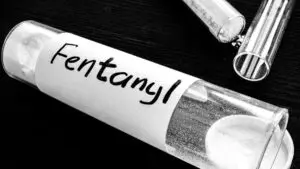You don’t really want to ask.
It’s rude.
It’s the elephant in the room no one’s given voice to yet.
But you have to because 88,000 people die from alcohol-related deaths every year in the United States.
Each one of those deaths was preventable.
Alcoholism doesn’t remain the sleeping beast forever. Alcohol use disorders cause significant physical and psychological damage; alcohol-induced brain damage appears in loss of memory, nerve cell damage, measurable cerebral changes, and a decline in brain mass.
You get the picture.
But how do you do something about someone else’s drinking problem?
Here’s an ingenious way to talk about someone else’s drinking problems everyone overlooks:
Talk Impact: “Hey Joey, I noticed you’re not working anymore.”
When broaching the subject about how someone’s drinking problem is affecting their life, talk impact. There’s a good chance they’ve heard it before, and they won’t want to hear it again.
But:
Your voice may cut through even the stubbornest of “enthusiasts” if you offer tangible evidence about how one’s drinking is impacting the lives of the people they love around them. Use examples from how their children are affected, significant others, and progression of one’s aspirations.
Chances are if your loved one is in the throes of a full-blown alcohol substance use disorder, your words won’t cut through the psychological and physical need of alcohol. However, if your loved one is experiencing early warning symptoms of alcoholism, this tactic may work well.
Alcoholism (full-blown or not) impacts every facet of daily life including:
- Parenting ability
- Work ethic and professionalism (Do you go to work hungover?)
- Have a healthy self-image
- Measure of fatigue
- Lags of memory (Blackouts)
- Drinking binges
Some Conversation Starters Include:
“You don’t seem happy anymore. Is there a particular reason why you’re drinking so much? No judgment, I just want to understand what you’re going through.”
“I remember when you loved working on _________. Is there a reason why you haven’t pursued it? Is that one of the reasons why you’re self-medicating so often? Is there anything I can do to help? I’m always here to just listen.”
“I noticed you and (significant other or child) don’t spend as much time together anymore. I haven’t heard any new stories! What’s going on? I’ve also noticed you’re drinking a lot more— and I don’t say that out of judgment, I’m just genuinely asking if you’re doing well.”
The key here is to be earnest, be genuine, and be ready to help.
You don’t have to be a therapist to lend someone an ear. Although alcoholism (or symptoms of abuse) are concerning, there’s always an underlying cause for one’s self-medication.
What You Need to Know About Self Medication with Alcohol
Self-medication is the unconscious or conscious use of an addictive substance to blot out the discomfort of emotional unrest.
This may be generalized depression or an undiagnosed mental health disorder. Self-medicating is not limited to addictive substances, and may extend into abusive or dysfunctional romantic relations, an unhealthy relationship to food, or binge-watching.
Self-medicating has no bounds.
And if someone you love has found temporary solace in alcohol, don’t crucify them for it— try to understand why it happened.
Why does alcohol help you feel better? What don’t you want to feel anymore?
Self-medication is a classic way to escape pain.
The Takeaway
Alcoholism or alcohol abuse is serious, but there’s always a cause.
Your job is to let your loved ones know you’re there for them and that you’re ready to help— no matter what that means. If your loved ones are ready to get help, check out listings for local treatment centers and start asking the right questions about getting help. Open the conversation with an opener that 1) emphasizes something that has happened (or has been lost) as a result of one’s drinking problem and 2) firmly establishes your inquiry has no strings of judgment attached.



